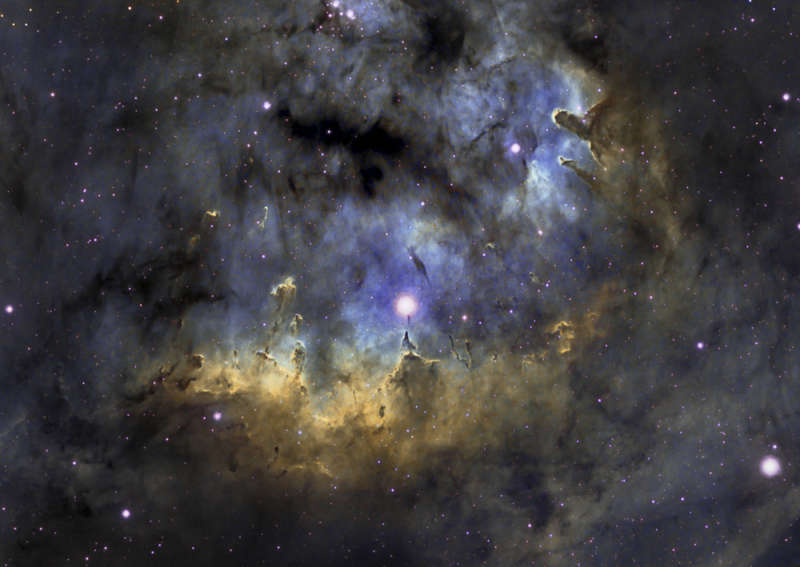
|
Credit & Copyright: Manuel Fernández Suarez
Explanation:
Hot, young stars and cosmic pillars of gas and dust
seem to crowd into NGC 7822.
At the edge of a giant
molecular cloud toward the northern
constellation
Cepheus, the glowing star forming region
lies about 3,000 light-years away.
Within the nebula, bright edges and dark shapes are
highlighted in this
colorful skyscape.
The image includes data from
narrowband filters,
mapping emission from atomic oxygen, hydrogen, and sulfur into blue,
green, and red hues.
The atomic emission is
powered by energetic radiation from
the hot stars, whose powerful winds and radiation also sculpt
and erode the denser pillar shapes.
Stars could still be forming
inside the pillars by
gravitational collapse,
but as the pillars are
eroded away, any forming stars will ultimately be cutoff from their
reservoir of
star stuff.
This field spans around 40 light-years at the estimated distance
of NGC 7822.
|
January February March April May June July August September October November December |
| ||||||||||||||||||||||||||||||||||||||||||||||||
NASA Web Site Statements, Warnings, and Disclaimers
NASA Official: Jay Norris. Specific rights apply.
A service of: LHEA at NASA / GSFC
& Michigan Tech. U.
Based on Astronomy Picture
Of the Day
Publications with keywords: emission nebula - star formation - composite image
Publications with words: emission nebula - star formation - composite image
See also:
- NGC 1333: Stellar Nursery in Perseus
- APOD: 2025 December 28 Á NGC 1898: Globular Cluster in the Large Magellanic Cloud
- NGC 253: Dusty Island Universe
- APOD: 2025 October 21 Á IC 1805: The Heart Nebula
- Young Suns of NGC 7129
- APOD: 2025 December 17 Á W5: The Soul Nebula
- APOD: 2025 December 9 Á The Heart of the Soul Nebula
